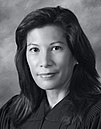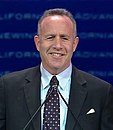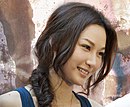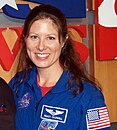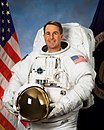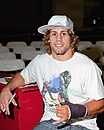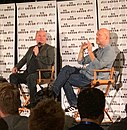University of California, Davis
The University of California, Davis (UC Davis, UCD, or Davis) is a public land-grant research university in Davis, California, United States.[10] It is the northernmost of the ten campuses of the University of California system. The institution was first founded as an agricultural branch of the system in 1905 and became the seventh campus of the University of California in 1959.
Former names
University Farm
(1905–1922)
Northern Branch of the College of Agriculture (1922–1938)
College of Agriculture at Davis (1938–1959)
1905 (1959 as a general UC campus)
$2.25 billion (2021)[1]
$7.1 billion (FY 2024)[2]
2,133 (Fall 2017)[5]
40,850
(Fall 2023)[6]
31,797 (Fall 2023)[6]
9,053 (Fall 2023)[6]
Aggie blue and gold[9]
Founded as a primarily agricultural campus, the university has expanded over the past century to include graduate and professional programs in medicine (which includes the UC Davis Medical Center), law, veterinary medicine, education, nursing, and business management, in addition to 90 research programs offered by UC Davis Graduate Studies. The UC Davis School of Veterinary Medicine is the largest veterinary school in the United States. The UC Center Sacramento, a public-service oriented program founded in 2004, is operated by UC Davis.[11] UC Davis also offers certificates and courses, including online classes, for adults and non-traditional learners through its Division of Continuing and Professional Education.[12]
The university is classified among "R1: Doctoral Universities – Very high research activity".[13] The UC Davis Aggies athletic teams compete in NCAA Division I, primarily as members of the Big West Conference with additional sports in the Big Sky Conference (football only) and the Mountain Pacific Sports Federation. Athletes from UC Davis have won a total of 10 Olympic medals. University faculty, alumni, and researchers have been the recipients of two Nobel Prizes, one Fields Medal, a Presidential Medal of Freedom, three Pulitzer Prizes, three MacArthur Fellowships, and a National Medal of Science.[14][15][16][17][18]
Organization and administration[edit]
The entire University of California system is governed by the regents, a 26-member board, as established under Article IX, Section 9 of the California Constitution.[56] The board appoints the university's principal officers including the system-wide president and UC Davis Chancellor.
The UC Davis Chancellor has overall responsibility for the leadership, management, and administration of the campus and reports to the President of the University of California system, a position currently held by the former president of Ohio State University (and chancellor of UC Irvine), Michael Drake, whose predecessor was former Secretary of Homeland Security and Arizona Governor Janet Napolitano.
The Offices of the Chancellor and Provost is headed by the executive vice-chancellor and provost (EVCP). In their capacity as executive vice-chancellor, the EVCP shares with the chancellor in the overall leadership and management of campus administration and operations, whereas as provost, the EVCP is UC Davis' chief academic officer.
The senior staff provides executive support to the Offices of the Chancellor and Provost. The Council of Deans and Vice-Chancellor consists of the heads of the university's major academic and administrative units.[57]
Students are most likely to interact with or be directly affected by the Office of Student Affairs, which is run by the vice chancellor of student affairs, currently Fred Wood, and by a variety of associate and assistant vice-chancellors. This office oversees many campus units including: Admissions, Athletics, Campus Recreation, Campus Unions, Counseling and Psychological Services, Financial Aid, Student Housing and others.[58]
UC Davis currently has over 260,000 living alumni.[157] Notable alumni of UC Davis include two astronauts; scientist Charles Moen Rice, 2020 Nobel Prize in Physiology or Medicine laureate and Katherine Jungjohann; US Treasurer Anna Escobedo Cabral; Chevron CEO John S. Watson; entrepreneur Jason Lucash; and actor Matthew Moy. Notable faculty include two-time Pulitzer Prize-winning historian Alan Taylor and painter Wayne Thiebaud.


